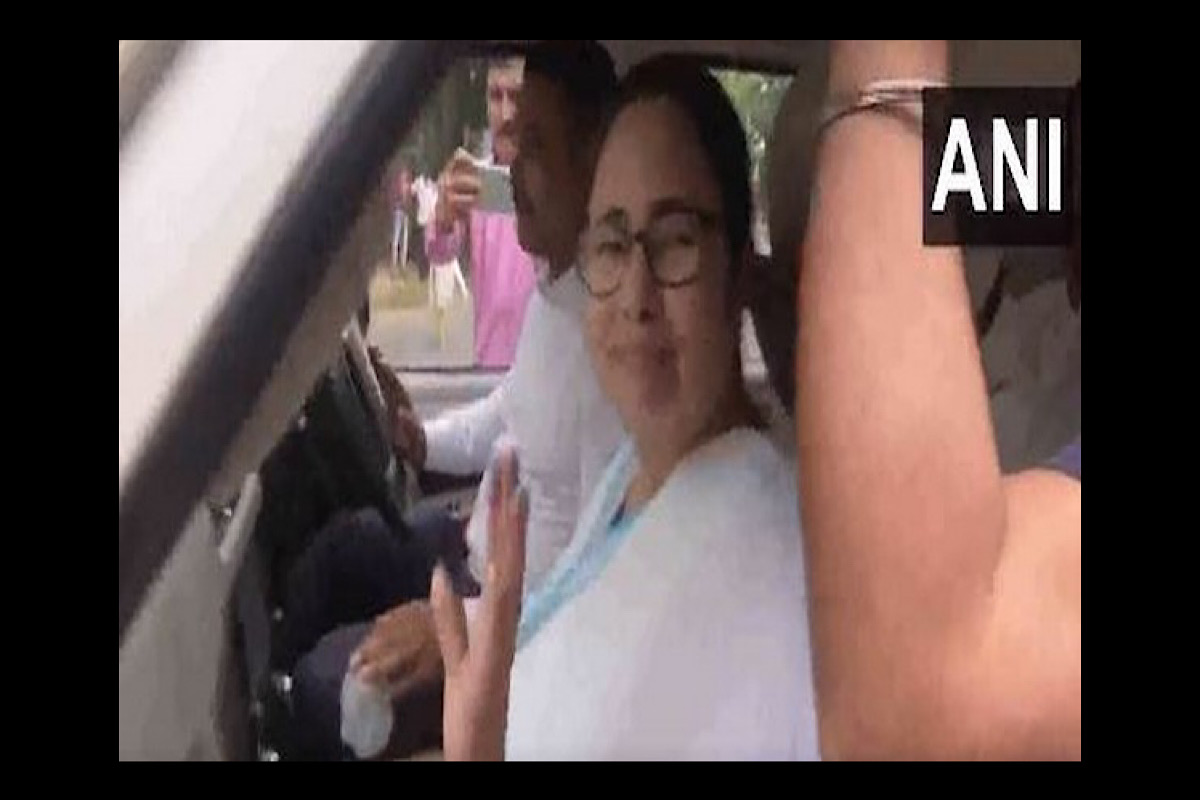The best way to forecast the future is to get hold of the present. And, Trinamool Congress Party is doing exactly that — campaigning in the backwaters of West Bengal before the panchayat polls but with an eye on Lok Sabha polls 2024.
And the general reflection in the political circles is that as far as the rural polls are concerned, the Mamata Banerjee government’s numerous public distribution schemes which have benefitted the rustic electorate immensely, ought to speak for itself and she hardly needs to do much convincing as far as her good intentions are concerned.
Advertisement
But going by the numerous back-to-back campaigning programmes that the party has planned for the next few days until polling begins on July 8, Didi is not taking any chances. Not only has Mamata’s nephew and the All India Trinamool Congress general secretary, Abhishek Banerjee just completed a two-month-long, mostly-on-foot, rural outreach programme during which time he covered almost the
whole state, he will again be starting June 27, another tour of the remote districts of the state.
This time his focus would be on the southern part of the state, starting from Nadia district while his aunt, the chief minister and party chief will tour the northern districts of the state. In fact, she has already travelled to the Cooch Bihar district and has begun her campaigning today (June 26). But that’s not all.
She has personally hand-picked 50 senior party leaders including MPs, MLAs, and ministers, to campaign in different areas of the state. They include veteran politicians Professor Saugata Roy, Chandrima Bhattacharya, Aroop Biswas, Shobhondeb Chattopadhyay, Swapan Debnath, Dr Sashi Panja.
In an interview with this correspondent, Prof. Roy indicated that Didi’s policy is: “Don’t be complacent. It is important to be constantly connected to the ground,” said Prof Roy. “You cannot lose touch with the people. We have been strengthening our base.”
He reminds something that various political experts agree on, the “complacency” and “over-confidence” which were the undoing of the 34-year-old CPIM-led Left Front government which lost power to Mamata Banerjee in the assembly elections of 2011. Veteran Bengal political expert Tarun Ganguly also says, “Their (Left Front) eyes and ears were not on the ground.”
He adds, “After three and a half decades of uninterrupted rule, complacency had set in and the party leaders sitting in the Alimuddin Street office (the head office of the CPIM in Bengal) were found to be oblivious of how the ground was slipping away from right under their feet.”
There are of course other reasons for Didi’s insistence on keeping the campaigning going in spite of indicators that the rural electorate is quite taken in by her various public distribution schemes, all of which address a set of rudimentary requirements, such as food, health, education, etc. And one such reason is her key rival, the BJP’s growing presence in various districts of the state.
Not only have BJP’s top leaders (including Prime Minister Narendra Modi and Home Minister Amit Shah earlier campaigned in rural areas of the state, and there are more visits planned, but also a section of the electorate itself views that party as an alternative.
“There was a time when we didn’t have any alternatives,” says Sujit Gyne, a Toto driver in Kolkata who is registered as a voter in his village in Bashirhat in the North 24 Paraganas District. “This time there is an alternative and possibly a few would exercise that option because they want to give a chance to the one political party that has not already ruled the state. They want to see what benefits that party can do for the poor people (sic).” And that political party, of course, is the BJP. The BJP’s two biggest advantages are that it has not ruled Bengal before (and people would want to give it a chance) and the other is that because it also rules at the Centre, people could perceive it to be beneficial from the point of view of Centre-State relations and for the smoother operations of ongoing projects dependant on both the Centre and the State.
“We keep hearing that the central government is not cooperating with the state government (the latter has often accused the former during its various campaigns that the state’s financial dues have not been paid including those pertaining to payment of wages to workers of the 100-days-rural employment-guarantee scheme),” says Gyne. “Perhaps if the same party ruled both the State and the Centre, it would be better for the poor people.”
This probably explains the massive gain in seats and vote share that the BJP witnessed in the last two elections – the Parliamentary elections of 2019 and the Assembly elections of 2021.
However, according to Dr Roy, the BJP’s gain is not a concern for the Trinamool. “BJP’s communal agenda has not worked in the state.” He points out that the party for all its gained ground, could not defeat Trinamool. “There is no anti-incumbency,” he says.
There is more than meets the eye. Gyne added that the exercise to strengthen the ground with the rural programmes has a lot more to do than just campaigning for the polls next month. It is about testing the waters for the general elections next year and about staying connected to the masses.











